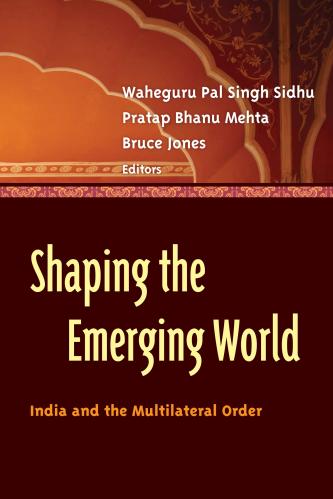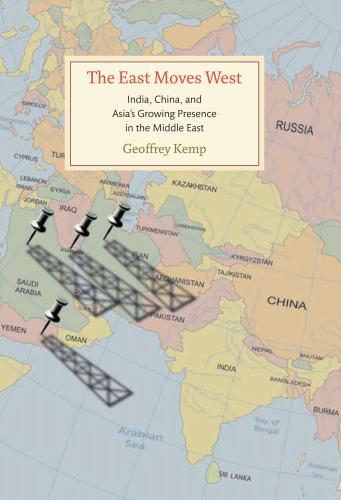Content from the Brookings Institution India Center is now archived. After seven years of an impactful partnership, as of September 11, 2020, Brookings India is now the Centre for Social and Economic Progress, an independent public policy institution based in India.
The chapter is part of a briefing book ‘India and Africa: Forging A Strategic Partnership’ edited by Dr. Subir Gokarn, Dr. WPS Sidhu and Shruti Godbole.
Introduction
There was a time when the global perception of India was no different from Africa. India was known as a country of elephants and snakes while Africa was known for bigger mix of wildlife. African socio-political instability and insecurity added a little more spice to the comparative diversity. One more, often talked about comparison was the volume of population – India has a billion plus population almost comparable to that of Africa.
The defining moment for India was the year 1991 when the then Finance Minister Mr. Manmohan Singh launched the globalisation program – a successful program that catapulted India into a “world economy”. For the Indian business community, globalisation meant expanding businesses out of India rather than within India. Export gained more importance and doing business out of India became an icing on the cake for the ambitious Indian businessman. In real sense, the process of closely looking at the African continent for business started in year 2000. Indian businesses targeted the “latent demand for everything” in Africa, little realising that unlike India, Africa was not a federal country with 29 states but a continent with 54 countries that represented diverse populations, political philosophies and leadership. And this diversity is here to stay. Nevertheless, the challenges of doing business in Africa are not transient but static in nature and as Chris Grosser said, opportunities don’t happen, you create them! Can you go by the rule book to create opportunities in Africa?
Diversity creates Opportunities
It is said that growth creates opportunities. However, the African continent has been growing at an annual average growth rate of below five percent year on year (YoY) for the past two decades. Few African countries that have grown over eight percent on YoY basis are suffering from a number of flashpoints viz. civil war, health issues, economic turmoil etc. A perfect case study to prove that material imbalances create growth!
As per a recent World Bank report, post 2015, the Continent’s growth is estimated to be lower than 4-4 percent annually due to slower expansion of economic activity despite the fall in global oil prices and other basic commodities. The report goes on to predict that foreign investment is expected to provide less economic support to African economies in years to come.
Nonetheless, all is not lost. There is a great amount of diversity amongst Africa’s 54 low-income, lower-middle-income, and upper-middle income countries. Each country faces a distinct challenge to transit towards the next level of development and such a scenario presents diverse opportunities for doing business as well. As per the World Bank Report, oil and commodity exporting countries such as Nigeria, Angola and South Africa face negative growth rate due to weaker global prices. These big economies of Africa are gradually shifting their economic focus to non-oil sectors especially service industry and creating business opportunities in tourism and financial services to experience inclusive growth. Countries such as Kenya, Ethiopia, Mozambique and Ivory Coast would experience stable or even higher growth rates due to increased spending on expanding their physical infrastructure and public services. Despite slowdown in international financial markets, these and such countries have successfully sold government guaranteed bonds to finance infrastructure projects and established creditability with the global investors hungry for new openings. Opportunities would therefore continue in Africa’s infrastructure space. However, this space is expected to be dominated by big ticket transportation projects rather than plain vanilla energy projects.
Burgeoning Public Debt is a cause of concern, especially in smaller economies of Rwanda, Burkina Faso, Guinea and Namibia. A number of African countries are seen to be bowing to pressure from the International Monetary Fund (IMF) and are taking measures to contain fiscal deficit . This has given rise to PPP/ BOT projects on attractive terms, thereby reducing state intervention. Countries such as Ghana, Niger, Mozambique and Senegal are ripe for private investment in huge infrastructure projects which will deliver profitable annual annuity to the investor on a long term basis. Green-field sugar, cement, fertilizer, energy and mini steel projects with captive feedstock are also available at promising growth centers across Africa for private investment. Affordable housing at upcoming urban centers is yet another opportunity. As per World Bank estimates, Africa now enjoys world’s fastest urbanization rate. Half of Africa’s population will live in towns and cities by 2040. Urbanization is closely linked to increase in income levels. There fore, such population will have the ability to pay for the infrastructure products and services. Today there are more toll roads in Africa than India and users are paying! Like wise, at the end of this decade, Africa will have more power generation and sea port projects in PPP/BOT space.
Trading Business – losing its sheen
Fortune Magazine has projected the African consumer spending at over US$ 1 trillion annually by the year 2020. Obviously such large demand cannot be met through imports. Therefore, Indian and Chinese trading community has to realize the paradigm shift that is taking shape in Africa. Chinese and Indian business majors are busy collecting African minerals, agro produce and other raw materials to feed their factories back home and export cheap, sub-standard products into Africa, whereas their western counterparts are currently busy investing in Africa’s manufacturing space by leveraging their entrepreneurship and innovation. IBM, GE, Starbucks, Facebook have set up their presence in Africa. GE Africa CEO Jay Ireland sums it up by saying “Just about anything GE does – health care, power, transportation – is finding an opportunity in Africa”.
There is another shift taking place in Africa. Countries such as Senegal, Ivory Coast, Mozambique, Nigeria, South Africa, Tanzania and Kenya enjoy huge amounts of border trade. Most of the big traders in such countries, many of whom are naturalized citizens of Indian origin, are gradually moving towards the manufacturing sector. Falling technology and communication costs, Government sponsored barriers and the western educated gen-next is forcing these plain vanilla traders to venture into the whole value chain rather than limiting themselves to the import-export business.
English speaking African countries seem to have an edge over their French speaking counterparts in attracting global manufacturers to set up shops locally. If the trend continues, irrespective of World Bank projections, the foreign aid in Africa will very soon be over shadowed by record increases in foreign direct investment.
Educating Africa
In this decade, a huge amount of analytical work on Africa’s structural transformation on macroeconomic policy and polity has been spearheaded by t he World Bank, and other prominent organizations like World Economic Forum, OECD as well as global investors. Regional trade blocks and political groupings like EAC, ECOWAS, NEPAD, SAPP, SADC, COMESA too are gaining cohesiveness reducing the connectivity and mobility bottlenecks to facilitate productivity enhancement and economic integration. During the past one year, leaders of U.S., UK and Japan together with their entrepreneurship ambassadors have visited prominent African economies to create space for their business majors.
Positive changes are visible in majority of African countries in the various areas economic governance viz. ease of doing business via single window clearances, tax reforms, investor protection and local safety and security. A report by African Development Bank (AfDB) published last year states that more than two thirds of the continent has registered overall improvement in the quality of economic governance in recent years, with increased capacity to deliver economic opportunities and basic services. The report further says that the costs of starting a business in Africa have fallen by more than two-third over the past seven years while delays in starting a business have been halved.
“We choose to go to the moon in this decade and do the other things, not because they are easy, but because they are hard” said John F. Kennedy. The latent African demand is slowly being converted into potent demand. The demand is fragmented and situated in diverse non-homogeneous geographies. Therefore identifying your space and sustaining your business is critical to succeed in Africa. Economic governance in Africa is improving and a focussed investor with appropriate investibles will create a reasonable space for him – only before it is too late.





